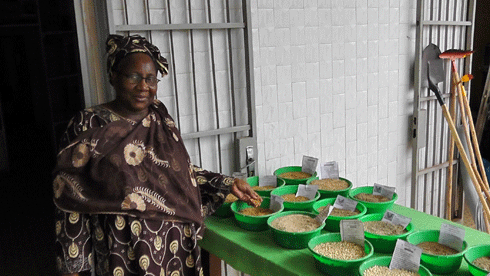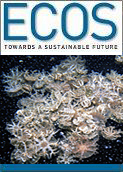
|
Published: 3 September 2012
Australian and African scientists unite on food crisis
Teams of scientists from CSIRO and one of Africa’s leading agricultural research and development organisations have met in Brisbane to discuss solutions to West and Central Africa’s food security crisis.
Funded by the Australian Agency for International Development (AusAID), the focus of the $15 million partnership is to address food insecurity in famine-prone regions.
Representatives from the West and Central African Council for Agricultural Research and Development (CORAF/WECARD) based in Senegal are working with CSIRO to finalise the next phase of this partnership.1
In a first for the region, more than 30 national agricultural research institutes, 80 African scientists and 400 farmers, extension officers, processors and sellers of agricultural produce are working across 10 countries. This combination of African and Australian expertise is delivering a long term approach to tackling food insecurity and animal health issues in West and Central Africa.
West and Central Africa’s population is around 360 million. By 2030 it is anticipated to exceed 500 million. A massive increase in crop yields is needed to meet the immediate demand for quality food and nutritional requirements, let alone projected demand in 2030.
Dr Brian Keating, director of CSIRO’s Sustainable Agriculture Flagship, said Australia responds to crises like the Horn of Africa famine, and now the Sahel crisis, through important emergency relief initiatives.
‘However, the food systems across these regions are fragile and we must focus on underlying issues to find long-term solutions. Across Africa, low production and inefficient distribution of food is linked to issues of limited fertiliser and pesticide availability and use, inadequate markets and poor access to animal health information and solutions for farmers.’
Dr Aboubakar Njoya, Director of Programs at CORAF/WECARD, said per-hectare yields for most crops across the whole of sub-Saharan Africa are among the lowest in the world.
‘Seasonal events also push areas across the region into famine much more readily than more resilient regions around the world, like Australia, where you’ve learnt to cope with climate variability and low soil fertility.’
Animal health is also a critical focus of the partnership. One example of research success so far has been in understanding the infestation of the cattle tick Boophilus microplus (Bm), an aggressive tick species introduced in West and Central Africa that causes severe weight loss in infested cattle, cripples them and transmits deadly diseases.
‘Cattle are like money in the bank for African herdsmen, a quarter of the region’s population rely on livestock for their livelihoods, so animal health issues really need to be addressed,’ Dr Njoya said.
‘Now that we know what this tick species is we can work with farmers to help minimise its impact – it will take a big effort and results will take time, but it’s an important step to helping African farmers and families have more food and secure their incomes.’
Dr Chris Prideaux, senior research scientist at CSIRO, said the Australian beef industry also suffers from this tick species.
‘While we haven’t been able to eradicate it, we have developed strategies to reduce its impact. This partnership enables us to share that knowledge with African scientists and farmers. We have a big program focused on processing cattle blood samples across Benin and Mali, and we’ve developed strong links with the relevant ministries and also key NGOs in the region,’ Dr Prideaux said.
The project team will work with farmers to monitor the health of cattle, and with government workers to develop control strategies and education programs for farmers.
Dr Keating said the partnership is an example of Australian science sharing its knowledge with international partners.
‘At the same time, our Australian scientists are bringing back lessons and insights that can be applied here to Australian agriculture. Australian agricultural research has enabled massive advances in food production and we are recognised world-wide for our expertise in dryland farming systems and animal health – we have a lot to offer Africa.’
Source: CSIRO
1 CORAF/WECARD is an umbrella organisation of the National Agricultural Research systems of 22 countries, coordinating and facilitating research and extension activities across West and Central Africa. CORAF/WECARD stands for the West and Central African Council for Agricultural Research and Development. CORAF/WECARD aims to improve agricultural productivity through West and Central Africa by coordinating the implementation of agricultural research, technology dissemination and adoption. CORAF/WECARD is one of four key subregional organisations and is a partner with FARA (Forum for Agricultural Research in Africa).




